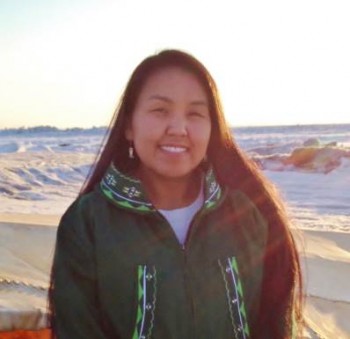Q & A with Nicole Kanayurak
 What led you to pursue a Master of Marine Affairs?
What led you to pursue a Master of Marine Affairs?
As an Inuit person from a coastal community that derives sustenance from the ocean, the Arctic marine environment has shaped a large part of my identity. Inuit people are involved in decision-making on marine affairs and my home state of Alaska has to manage the longest coastline in the U.S. I am pursuing a Master of Marine Affairs to continue to be involved in making decisions that will affect the Arctic marine environment that includes Inuit.
Why did you choose UW’s SMEA for graduate school?
I came to UW’s SMEA for graduate school because a colleague and mentor recommended the program to me. The interdisciplinary nature of this program also fits well with my interests and allows for one to engage in learning about a multitude of perspectives on marine affairs.
What are you writing your thesis about and why?
I am doing my thesis research on polar bear co-management by the U.S. Fish and Wildlife Service and Alaska Natives.
What has been your favorite class at UW so far? Why?
My favorite class at UW so far is probably one I am in right now called “Power, Privilege, and Preservation.” This course is ENVIR 460 facilitated by Professor Helmiere through the Program on the Environment.
What do you like most about SMEA?
SMEA is a program that prepares one to be able to communicate well with different stakeholders on marine affairs. The School of Marine and Environmental Affairs not only prepares students to be leaders in marine policy and management but it is a valuable degree because it is an interdisciplinary degree. SMEA allows one to be flexible and acquire a holistic skill set that a multitude of organizations from federal agencies to oil and gas corporations may need.
What’s it like to live in Seattle? What do you do in your spare time?
Seattle is the largest city I have lived in and presents access to many opportunities for exploration everyday. In my spare time you will probably find me traveling.
What is your favorite form of marine life, and why?
In a workshop I attended recently on Inuit food security we discussed the “spirit of all” or Iñua. Iñua is present in the marine environment and echoes with the Inuit lens and value system.